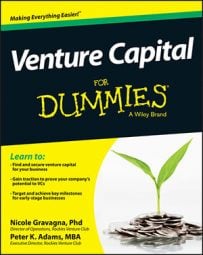When developing your pitch deck, explaining your marketing strategy to your potential investors is of utmost importance. You’ve no doubt heard the saying, “Create a better mousetrap, and the world will beat a path to your door.” Nothing could be further from the truth. It is much easier to make a product than to sell it. Selling your product necessitates a buyer, whose behavior you can’t predict or control.
As excited as entrepreneurs may be about their idea or product, in a world of media bombardment, getting the word out about your solution can be difficult and expensive. Investors see many good ideas, but they get really excited when they see a good idea paired with a great marketing strategy.
Venture capital investment requires that you be able to scale up quickly. For that reason, your marketing strategy can’t rely on your knocking on a thousand doors and selling your product. Instead, when you present this portion of your pitch, you need to describe a strategy that leverages strategic partnerships, distribution channels, social media, and traditional advertising channels.
Basically, you want to have a strategy that will result in thousands of sales with minimal intervention from you or your employees. Leveraging the capacity of partners makes it so that you don’t need to build out a substantial sales force, which is very expensive. By leveraging your resources, you are more efficient with your capital.
A strong marketing strategy includes the results of any marketing research or test marketing exercises you’ve done. Including data that support the cost to acquire a customer versus the lifetime value of a customer makes your marketing strategy slide even more compelling. You’d be surprised how casual many entrepreneurs are when addressing their marketing strategy and how negatively venture capitalists view that approach.

